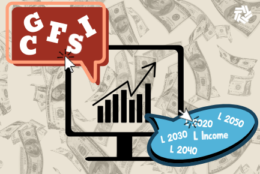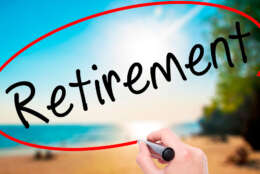Retirement
-
Fortunate federal retirees, like people who get Social Security, usually get a catchup-with-inflation increase in their benefits the first of each year.
September 03, 2020 -
Mike Causey asked long-time fed and financial coach Abraham Grungold to check out the 2020 situation, who listed some things which workers under the Federal Employees Retirement System retiring in 2020 should seriously consider.
September 02, 2020 -
And during times like this, when a pandemic is still running wild, your estate, which you may not have known you had, probably needs a little work because the old rules no longer apply.
September 01, 2020 -
In today's Federal Newscast, early retirement and buyout offers the Federal Deposit Insurance Corporation made to employees back in March are off the table.
August 25, 2020 -
The surprise wasn’t that it happened, but how quickly the market bounced back. So now investors are trying to makes sense of what to do.
August 25, 2020 -
A new survey of 5,000 participants found 87% are happy with the Thrift Savings Plan, a slight dip from 2017, the last year the Federal Retirement Thrift Investment Board collected feedback from its members.
August 24, 2020 -
Many of you have been holding out hope Congress will up the maximum voluntary incentive payment from $25,000 to $40,000. But with many agencies offering only early retirements -- and no accompanying incentive payments -- where does that leave you?
August 24, 2020 -
No matter how the pandemic has impacted your life, changes in your own situation may have happened that mean you should adjust your estate accordingly.
August 19, 2020 -
At one point or another, many federal workers have dreamed about what they would do if and when their agency offered them a buyout.
August 13, 2020 -
Six months into an historically-lethal pandemic that potentially threatens everybody on the planet is probably a pretty good time to update or begin your personal financial checklist.
August 12, 2020 -
After six months of progress on its backlog of retirement claims, the Office of Personnel Management backslid for the first time this year in July.
August 07, 2020 -
Did you retire before the pandemic became a fact of life? Before people other than bank robbers wore (hopefully) face masks all the time, and when working from home went from to perk to priority?…
August 04, 2020 -
Expert financial coach Abraham Grungold shares tips on how federal workers can best save money for retirement.
July 30, 2020 -
Some are predicting the impact of the virus on the economy, nerves and personal relations may actually trigger a tidal wave of retirements in many agencies.
July 29, 2020 -
When they eventually retire, 99% of all current federal-postal workers will depend on their Thrift Savings Plan to provide a substantial portion of their future lifetime income.
July 16, 2020















